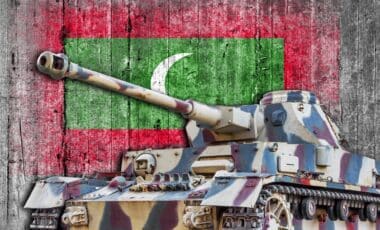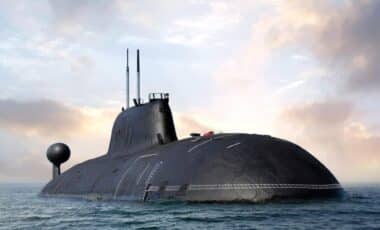Historians love to play “what if” with the people and places that populate the events that shape our destinies. So, according to writer and journalist Robert Harris, did Adolf Hitler. Of course, in Hitler’s case, the pondering on would have happened had he attacked France in September 1938 was not an abstract conundrum. As the events of World War II unfolded from brutal and obliterating success against all obstacles in his path to the turning of the tide in the war’s later years, Hitler was convinced that, had he not acceded to the negotiations of British Prime Minister Neville Chamberlain at Munich in 1938, the Third Reich would have had its thousand-year reign.
Neville Chamberlain has come down through history as the effete British prime minster whose meeting at Munich marked him as the loser in the period before the outbreak of war, when European leaders were desperate to do anything to avoid conflict with the military ambitions of Germany. Hitler had claimed parts of Czechoslovakia that were populated by German-speaking peoples and this was sufficient for the Nazis to add the territory to their own borders. Chamberlain’s willingness during the four-day meeting in Munich to allow the land-hungry German chancellor to take the Sudetenland has been viewed by subsequent generations as the equivalent of a green light to the madman who was determined to goose-step his way across Europe. After reaching the accord, Neville Chamberlain returned home proclaiming “Peace for our time.”
 Left to Right: Benito Mussolini, Adolf Hitler, a German interpreter, and Neville Chamberlain during a meeting in Munich in 1938.
Left to Right: Benito Mussolini, Adolf Hitler, a German interpreter, and Neville Chamberlain during a meeting in Munich in 1938.
Unimpressed, historians have derided Chamberlain’s accomplishment as appeasement. Harris sees it differently. In his historical novel Munich, he reminds his readers that Chamberlain, along with the other leaders of his generation, was painfully aware that the legacy of World War I, which was supposed to be the war to end all wars, had left 750,000 young British men in graves. Fast forwarding from the charnel house that Europe was in 1918, Chamberlain also knew that the British only had 20 Spitfires that were operational in 1938, while the Germans had invested heavily in air power. In a January 19 interview with National Public Radio, Harris explains his insights. “I think that if the British and French had gone to war in September 1938, Hitler might well have survived a lot longer and been much more triumphant.” Viewed from that perspective, Harris asserts that it was Chamberlain, not Hitler, who was the real winner at Munich. By buying time, Chamberlain inflicted delay on Hitler and that delay would ultimately cost Hitler his mastery of Europe.
One of the sources that Harris used to write his novel was the diary of Joachim Fest, who was the ghostwriter for the memoirs penned by Albert Speer, Hitler’s chief architect and the armaments minister for the Nazi regime. Speer confided to Fest that after the Munich agreement was signed, Hitler returned to Germany in a foul mood and felt that he had been duped by Chamberlain.
 Albert Speer
Albert Speer
For the two main characters, the German Paul von Hartmann and Hugh Legat, British, both Oxford-educated, who serve the two leaders, the question of how to do the right thing is fettered by the rising tide of brutality which is energizing tyrants and paralyzing democratic governments. Harris explained during the interview, “They are trapped on opposing sides and there is nothing, they feel, that they can do about it. . . there are forces at work in the world, driving it towards an abyss, and even though a lot of people can clearly see where everything’s going, no one seems able to stop it. And I feel therefore a great deal of empathy with these two young men, who are doomed to fight and it’s like a kind of madness, a sickness that’s going to work itself through.”
When Chamberlain returned home to the British public, he was indeed viewed as the man of the hour who had staved off the advance of war. But “peace for our time” didn’t last long because for peace, the clock was ticking. Hitler’s craving for the lands of other nations was insatiable and when Germany attacked Poland in 1939, Great Britain honored its pledge to defend Poland and declared war against Germany. Chamberlain resigned his post as prime minister because he believed that the wartime government needed the full support of all parties and he was aware that the Labor and Liberal parties would not join a government while he was the prime minister. He did, however, remain in the government as part of Churchill’s War Cabinet. Six months after resigning as prime minister, Chamberlain died of cancer.
Winston Churchill, pugnacious, eloquent, and committed to victory, succeeded Chamberlain as prime minister. Churchill also blamed Chamberlain for the agreement reached at Munich, a position he elaborated on in The Gathering Storm, where he targeted Chamberlain’s leadership for its failure, as he and many others saw it, to ready Great Britain for the war. Chamberlain was dead by the time Churchill’s book was published and unable to defend himself. But he is restored, albeit in fiction, in Harris’ account of those pivotal four days in Munich when the soon-to-be enemies would meet in a diplomatic summit before they abandoned words and turned to arms to solve the matter.
We think that we know everything there is to know about World War II, which continues to be a popular topic for novelists and historians alike. By shining a new light on Neville Chamberlain, author Harris demonstrates that very often, what we think we know is merely a shadow of the truth. Whether a novel of historical fiction will be able to restore the tarnished political reputation of a castigated British leader remains to be seen. But Harris’ account offers a fresh viewpoint and suspense as the characters try to solve a problem that threatens the world they live in.
For the reader, the tantalizing puzzle of “what if” Hitler had declared war in 1938 is an alluring backdrop to the story. History tells us that we will never know because “what if” does not enter the history books. But for Hitler, perhaps haunted by the specter of “what if” as his empire crumbled all around him, the decision at Munich was the history that betrayed him.








